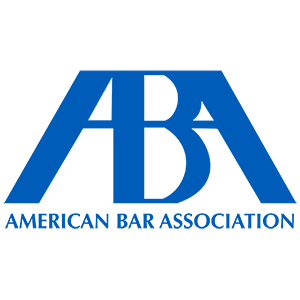Pushing Back Against the “Blue” FLU (Financial Litigation Units)
April 30, 2019
United States’ Attorney’s Offices (“USAO”) across the country, are becoming increasingly aggressive in enforcing restitution orders, and civil judgments. In the past, USAO Financial Litigation Units (“FLU”) typically did not go after Defendants’ homes, retirement funds, and children’s college savings accounts. That has changed. Many lawyers may not be aware that certain assets which are protected under various state Homestead Act exemptions are not protected under federal law.
The Mandatory Restitution Act (hereinafter “the Act”) authorizes the government to collect restitution “in accordance with the practices and procedures for the enforcement of a civil judgment under Federal law or State law.” 18 U.S.C. § 3613 sets forth the civil remedies available for unpaid fines, and applies to restitution per 18 U.S.C. §§ 3613(f) and 3664(m)(1)(A)(I). Section 3613(c) of the Act allows the government to treat a restitution order like an IRS tax lien. The only items exempted from collection are those found in the tax code at 26 U.S.C. § 6334(a)(1)-(8), (10), and (12). Self-Directed IRA’s, 401k plans, and other ERISA accounts are not included.
While prior court approval is required, the IRS regulations also allow the government to also levy on a taxpayer’s primary residence, if there is “no reasonable alternative for collection of the taxpayer’s debt.” See 26 U.S.C. § 6334(e)(1)(A); 26 C.F.R. § 301.6334-1(d)(1); United States v. Brabant-Scribner, 900 F.3d 998, 999 (8th Cir. 2018). Thus, while a certain amount of the home’s equity may be protected state’s Homestead Act, it is not exempt property under Federal law. See for example, Birch v. Dodt, 2 Ariz.App 228, 407 P.2d 417 (1965) (Homestead exemptions prescribed by Arizona statute were ineffective with respect to statutory liens of United States for federal taxes.)
The government relies heavily upon the Federal Debt Collection Procedure Act, 28 U.S.C. 3001 et seq. (“FDCPA”) to also collect restitution and fines. According to the United States Attorney’s Manual:
…The Act also allows for a writ of attachment on the client’s property and writ of garnishment on property and earnings. If the court enters a judgment against the client, upon filing, the judgment creates a lien on all the client’s real property, which remains in effect for 20 years. The court can order the sale of the property to satisfy payment of the restitution or the property itself can by subject to levy pursuant to a writ of execution…After the court orders restitution, all of a client’s property becomes subject to a lien in favor of the United States and may be garnished following the same method as tax liens. Thus, any property that may be seized to satisfy a tax lien may be garnished to fulfill a restitution order…
The government, has, in many cases, taken the position, that its power to collect fines and judgments is unfettered. Such is not the case. There are many ways that a defense attorney can protect her client from FLU’s aggressive tactics, both before and after a client is sentenced.
Counsel should insist that a payment plan for restitution be included in the plea agreement and the judgment.
First, defense lawyers should insist that the plea agreement and/or the Court’s Sentencing Order specify how the restitution is to be paid. For example, the Order should specify the precise amount of the defendant’s monthly payment, and how long that payment schedule will last. Some Orders provide that the defendant is to pay 10% of his or her income each month, for a period of years. Most provide a specific monthly payment, depending on the Defendant’s financial condition and earning power.
In determining the manner in which the restitution is to be paid, the Court must consider the defendant’s financial condition, obligations, and projected earnings. 18 U.S.C. § 3664(f)(2)(A)-(C). The Court must craft its restitution order “in the interest of justice.” 18 U.S.C. § 3572(d) (i); U.S. v. Hosking, 567 F.3d 329 (7th Cir. 2009). The Court may order the defendant to make a single lump-sum payment, reasonable periodic payments, or, if the defendant is indigent, nominal periodic payments. See 18 U.S.C. § 3664(f)(3)(A)-(B).
Clients can seek relief from the Court for restitution payments causing hardship.
Counsel should also advise their clients that they can seek relief from burdensome restitution orders. 28 U.S.C. § 3013 gives courts broad discretion to issue an order denying, limiting, conditioning, regulating, extending, or modifying the use of any enforcement procedure under the FDCPA, including a restitution order. FTC v. Nat’l Bus. Consultants, Inc., 376 F.3d 317, 321 (5th Cir. 2004). Courts have held that a district court may consider a defendant’s inability to pay under 28 U.S.C. § 3013, and may limit the government’s enforcement remedies. United States v. Ogburn, 499 F.Supp.2d 28, 30–32 (D.D.C.2007); United States v. Crowther, 473 F.Supp.2d 729, 731 (N.D.Tex.2007); United States v. Kaye, 93 F.Supp.2d 196, 199 (D. Conn. 2000).
One member of Congress noted the following regarding what 28 U.S.C. § 3013 was intended to accomplish:
“The bill acknowledges that important role played by the court in supervising the enforcement process by expressly recognizing the court’s authority to enter and modify protective orders on its own or otherwise. This broad and general authority to fashion an appropriate relief eliminates the need to anticipate all possible abuses or problems. We fully expect that the United States will not attempt to circumvent the exempt property rights of the debtor. We fully expect that the Government will generally seek to satisfy a judgment in a way that will minimize the adverse impact on the debtor and that will not unnecessarily disrupt the debtor’s affairs. And we fully expect that the debtor will normally be able to elect which property should be applied to the satisfaction of his debt. But if the United States were ever to attempt to abuse its power under this bill, the courts can steadfastly protect the debtor.”
136 Cong. Rec. H13288–02, 1990 WL 168500 at *H13289 (Oct. 27, 1990) (Statement of Rep. Brooks.)
In sum, any enforcement remedy, be it a garnishment, lien, or wage withholding, will likely have adverse impact on a defendant. However, the government must act in a reasonable and responsible manner. Oftentimes, FLU’s power goes unchecked, because defendants do not have the resources to challenge the government’s aggressive tactics. Courts should examine the totality of the circumstances to determine whether the collection efforts on behalf of FLU leaves a defendant with adequate resources to pay reasonable family and household expenses.








